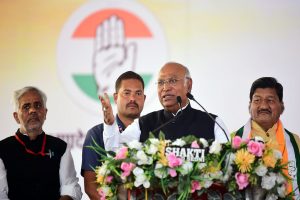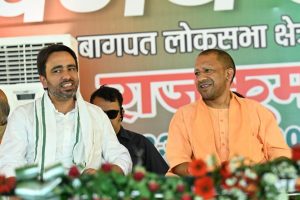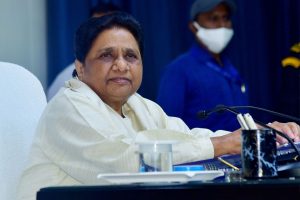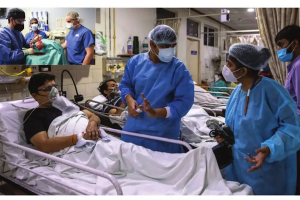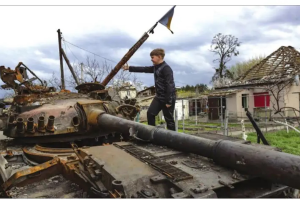While Mary Ward, who founded the Catholic order of the Institute of the Blessed Virgin Mary or Loreto community of sisters in the 17th century, is known to have said that she hoped women would do much in time to come, she may not have realised the full impact of her words. By 1985, her fourth centenary, Loreto schools and colleges for girls had spread “in lands both east and west”.
This year marks the 175th anniversary of Loreto in India. Numerous celebrations have been and are being organised all over the country, particularly in Kolkata, still the seat of provincialate in India. Recently, Loreto House, Kolkata witnessed the Loreto Pan-India Alumnae Symposium on “Education in 21st century India: Leadership and Empowerment”. The chief guest was Basab Chaudhuri, vice-chancellor, West Bengal State University and the moderator was Amita Prasad, teacher and educator.
The speakers were Indira Banerjee, chief justice, Madras High Court; Reena Sen, director, Institute of Cerebral Palsy; Jael Silliman, writer and academic, Ford Foundation; Sunita Narain, director, Centre for Science and Environment, New Delhi; Sambhunath Biswas, Techno India University and Anirban Ghosh, associate professor, Netaji Open University, Kolkata.
Advertisement
In her introductory message, Anita Braganza, provincialate superior, India took the gathering back to 1841, when a small group of Irish Loreto sisters left Ireland to embark on a four-month journey which culminated in their arrival at Babughat, Calcutta, in 1842. The youngest was 18 years old while the eldest and community leader Delphine Hart was 26 years. They were welcomed by the Catholic ladies of Calcutta and established themselves at the former garden house of Sir Elijah Impey, once chief justice of British India. Braganza quoted the words of Mary Ward in her appraisal of the Loreto ethos–justice, freedom, sincerity, joy and love in her welcome address.
A documentary was shown on Loreto institutions across India, beginning with Loreto House, Kolkata, founded in 1842, then followed by others at Darjeeling, Lucknow, Ranchi, Simla, Shillong, Delhi and Mumbai and more institutions in Kolkata, namely, Dharamtala, Entally, Eliott Road, Bowbazaar and Sealdah among others.
The Darjeeling Mary Ward Social Centre was founded in Siliguri in 2006 while the Kolkata Mary Ward Social Centre was established in 2014. In his speech, Chaudhuri said that education should be seen as giving, not just a necessity for a job. By 2020, there will be 140 million with higher degrees and there is and will be ferocious competition for degrees and jobs especially in engineering and technology. There should be more enlightenment and better administration in running an educational institution.
Banerjee studied at Loreto House, Presidency College and the University of Calcutta Law Department, elaborated on the meaning of education, stating that it was not just learning and acquiring knowledge but the inculcation of values, and proceeded to discuss whether education is solely acquiring qualifications and the meaning of leadership. Her speech was followed by Biswas who mentioned that the 21st century was one of computer science and engineering and discussed the development of the intelligent machine as well as the need for quality education.
Sunita Narain, eminent environmentalist and alumni of Loreto Delhi, began by emphasising environmental degradation and stated that leadership in the 21st century teaches values and builds foundations. She commented on the unequal distribution of power between urban and rural authorities.
Sen stressed the need for small and medium projects for the less fortunate while emphasising the need for inclusive education and distance learning. Ghosh spoke on open and distance learning at Delhi University and IGNOU while emphasising focus on digital learning. Silliman, spoke about women’s studies with case studies from southern Bihar and said that education was not only about jobs but also challenging discrimination and imparting quality with transformation.
(The writer is honorary associate, Centre for Urban Economic Studies, Calcutta University)
Advertisement


